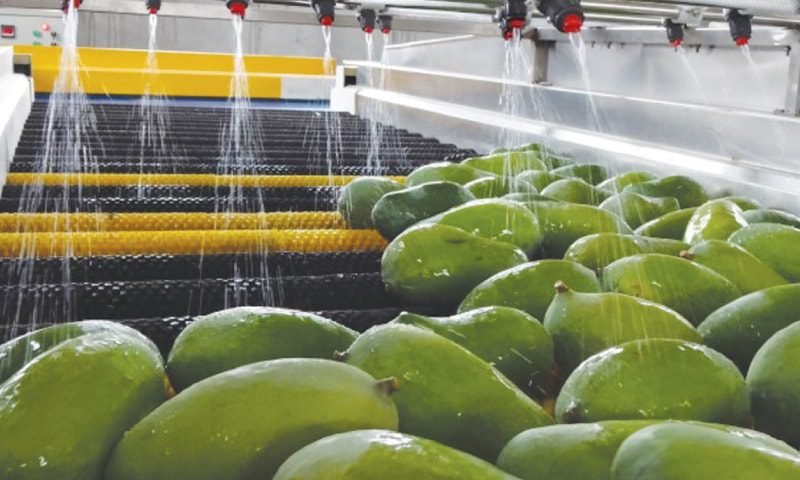Mango exporters in Pakistan are facing significant challenges in achieving their export target of 125,000 tonnes, with a 20% drop in production and concerns over the Department of Plant Protection’s (DPP) strategy. The All Pakistan Fruit and Vegetable Exporters, Importers and Merchants Association (PFVA) has criticized the DPP’s new standard operating procedure (SOP) issued on June 12, which mandates hot water treatment (HWT) of mangoes only from approved plants.
According to the PFVA, this discriminatory policy and favoritism have led to the closure of 90% of the 35 plants, resulting in a staggering loss of $44 million. The non-approved HWT plants were not issued no-objection certificates (NOCs) by the DPP, leading to job losses for around 2,500 skilled and unskilled laborers and adversely affecting 6,000 laborers associated with growers.
Expressing their concerns, the association has brought the DPP’s discriminatory policy and favoritism to the attention of the Ministry of National Food Security. The PFVA highlighted that while modern HWT plants face shutdowns due to minor objections unrelated to their core functions, certain approved plants continue to operate under the new SOPs. The non-approved HWT plants have been exporting mangoes to Europe, Iran, Australia, China, Kenya, and Iraq for many years without any complaints from buyers.
With the closure of 90% of HWT plants, the existing facilities are under immense pressure, treating mangoes beyond their capacity. This situation raises concerns about the treatment of mangoes exported from Pakistan. The PFVA has urged the ministry to address the issue promptly, taking note of the parties benefiting from the non-approval of HWT plants and holding responsible those officials who are undermining national trade.
Muhammad Shehzad Sheikh, Chairman of PFVA, warned that due to the non-operational status of HWT plants, India may take advantage of the situation and capture the international markets for mangoes. Exporters have confirmed orders from various countries, and if the issue persists, it could lead to a long-term loss for Pakistan.
Earlier, PFVA’s Patron-in-Chief, Waheed Ahmed, had predicted a drop in mango production to 1.44 million tonnes from 1.8 million tonnes last year before the start of mango exports in May. Punjab accounts for 70% of mango production, while Sindh holds a 29% share and Khyber Pakhtunkhwa contributes 1%. Approximately 50% of mangoes are exported from Pakistan by sea, 35% by land, and 15% by air.
The PFVA’s concerns highlight the urgent need for resolution and support from relevant authorities to ensure a smooth export process for mangoes, safeguarding the interests of Pakistani exporters, and maintaining the country’s position in the global mango market.



